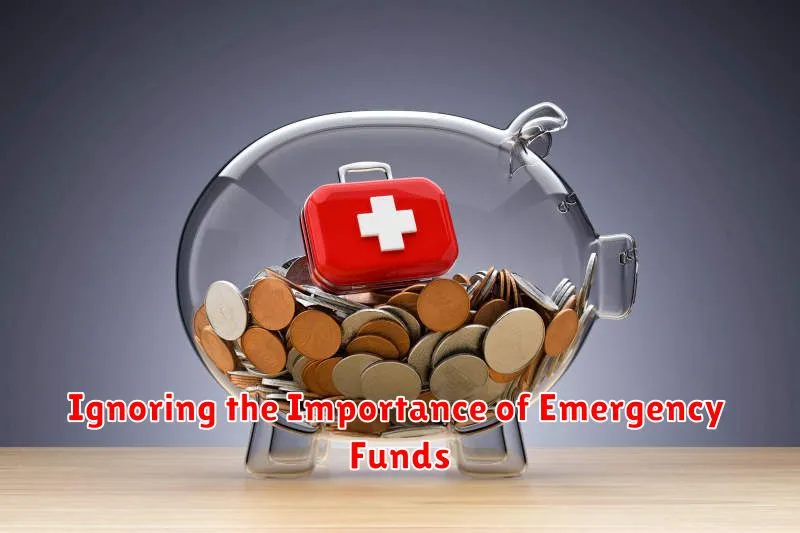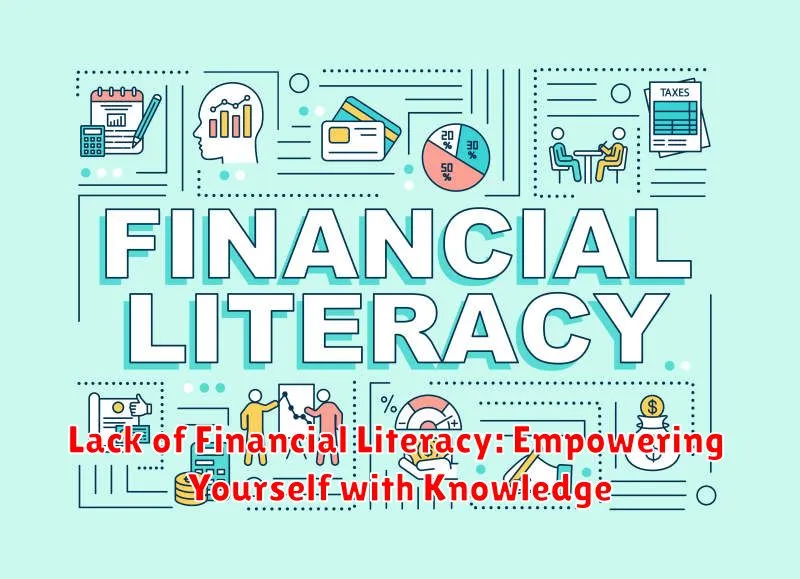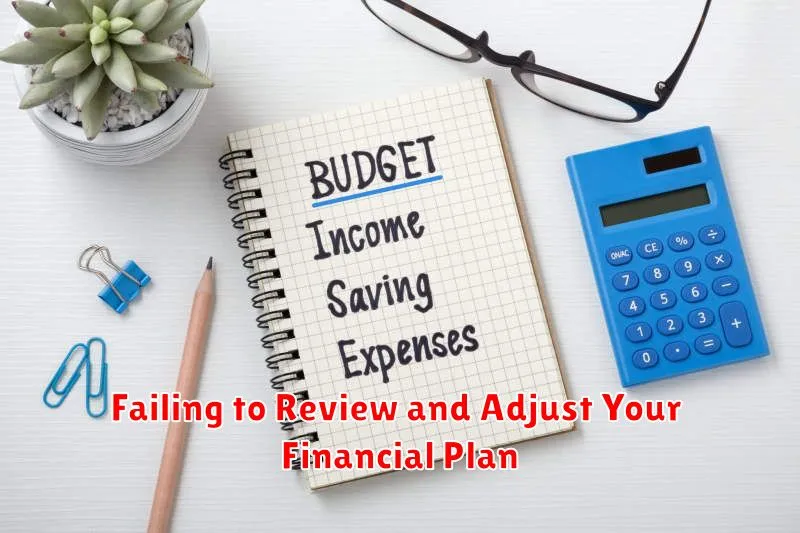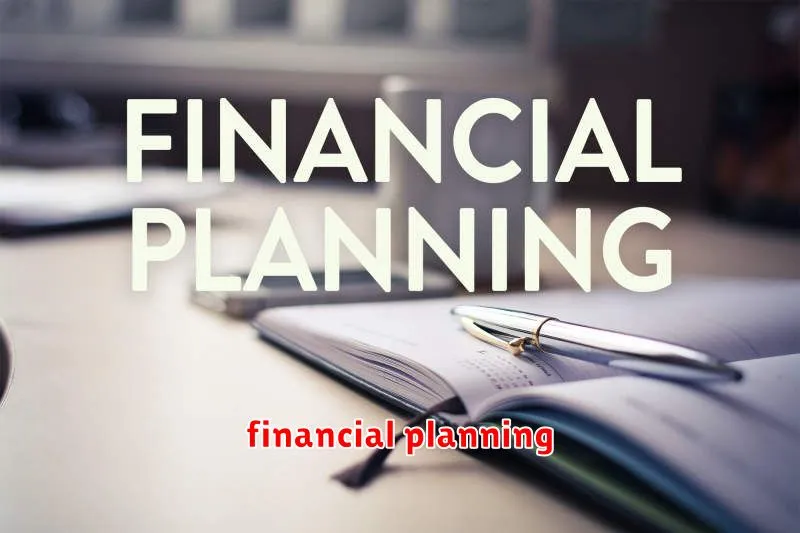Are you looking for ways to improve your financial health and avoid common money mistakes? Sidestepping financial pitfalls is essential for achieving long-term financial security and peace of mind. While it’s easy to fall into bad financial habits, it’s never too late to learn from your mistakes and make positive changes. In this article, we’ll explore some of the most common money mistakes that people make and provide practical tips on how to avoid them.
From overspending and not saving enough to carrying too much debt and lacking a budget, there are many financial pitfalls that can derail your financial goals. By understanding these common mistakes and implementing strategies to address them, you can set yourself up for a brighter financial future. So buckle up, and let’s delve into the world of financial wellness!
Overspending and the Perils of Impulse Purchases

In the modern world, it’s easier than ever to overspend. With the rise of e-commerce and the constant bombardment of marketing messages, it’s tempting to make impulse purchases that we don’t really need. But this can have serious consequences for our finances and overall well-being.
One of the biggest problems with impulse purchases is that they often lead to debt. When we buy things we can’t afford, we often have to rely on credit cards or loans. This can create a vicious cycle of debt, as interest charges accrue and it becomes even harder to pay off the balance.
Another problem with overspending is that it can lead to financial stress. When we’re constantly worried about money, it can take a toll on our mental and emotional health. This can lead to relationship problems, sleep difficulties, and even physical health issues.
In addition to the financial consequences, overspending can also have a negative impact on our sense of self-worth. When we make purchases based on emotion rather than reason, it can make us feel like we’re lacking something or that we need to buy things to feel happy. This can lead to a cycle of dissatisfaction and consumerism.
So how can we avoid the perils of impulse purchases and break free from the cycle of overspending? Here are a few tips:
- Create a budget and stick to it. This will help you track your income and expenses and make sure you’re not spending more than you can afford.
- Shop with a list and avoid browsing or window shopping. This will help you stay focused on your needs and avoid making impulse purchases.
- Wait 24 hours before making any major purchases. This will give you time to cool off and think about whether you really need the item or not.
- Unfollow social media accounts that promote consumerism and make you feel pressured to buy things.
- Focus on experiences rather than material possessions. Experiences tend to provide more lasting happiness than things.
Breaking the habit of overspending can be challenging, but it’s well worth the effort. By following these tips, you can start to take control of your finances and live a more fulfilling life.
Neglecting Budgeting: Taking Control of Your Financial Flow

In the whirlwind of daily life, it’s easy to let financial planning fall by the wayside. We often prioritize immediate needs and desires, neglecting the importance of a solid budget. However, ignoring financial planning can have serious consequences, leading to financial stress, debt accumulation, and missed opportunities for wealth building.
A budget is not just a restrictive list of expenses; it’s a powerful tool that allows you to take control of your financial flow. By understanding where your money goes, you can identify areas where you can save, invest, and achieve your financial goals.
Here are some compelling reasons why neglecting budgeting can hurt your financial well-being:
Financial Stress and Anxiety
Living paycheck to paycheck, constantly worried about bills and unexpected expenses, can take a toll on your mental and emotional well-being. A budget can help you prioritize expenses, reduce financial stress, and gain a sense of control over your finances.
Debt Accumulation
Without a budget, it’s easy to overspend and rack up debt. You may be tempted to use credit cards for everyday purchases, leading to high interest rates and a snowballing debt burden. A budget can help you track your spending, avoid impulsive purchases, and pay off debt more effectively.
Missed Opportunities for Wealth Building
Financial planning allows you to allocate funds toward your goals, such as saving for retirement, investing in your education, or buying a home. By understanding your spending habits and identifying areas for savings, you can free up money to invest and build wealth over time.
Lack of Financial Security
Without a budget, you may be unprepared for unexpected financial emergencies, such as a job loss or medical bills. A budget helps you create an emergency fund, providing a safety net for unforeseen circumstances.
Taking control of your finances is crucial for a secure and prosperous future. A budget is not a burden but a powerful tool that empowers you to achieve your financial goals and live a more fulfilling life.
Ignoring the Importance of Emergency Funds

In the realm of personal finance, the concept of an emergency fund often gets brushed aside. Individuals tend to prioritize immediate needs and desires, overlooking the crucial role that an emergency fund plays in safeguarding their financial well-being. This negligence can have dire consequences, leaving them vulnerable to unforeseen circumstances and financial hardship.
An emergency fund serves as a financial safety net, providing a cushion during unexpected events such as job loss, medical emergencies, or car repairs. It acts as a buffer against financial shocks, preventing individuals from resorting to high-interest loans or depleting their savings.
Ignoring the importance of an emergency fund can lead to a cascade of negative consequences. Without a financial safety net, individuals may find themselves in a precarious position when faced with an unexpected expense. They may be forced to:
- Borrow money at exorbitant interest rates: This can create a cycle of debt, further straining their finances.
- Liquidate assets: Selling off investments or property can result in significant financial losses, particularly if the assets are sold at a distressed price.
- Take on additional debt: This can further worsen their financial situation and hinder their ability to save for the future.
- Delay important financial goals: The lack of an emergency fund can jeopardize their ability to achieve long-term goals such as retirement or homeownership.
The consequences of not having an emergency fund can extend beyond financial hardship. It can also lead to:
- Increased stress and anxiety: The constant worry about unforeseen expenses can take a toll on mental and emotional well-being.
- Damaged credit score: Missed payments due to financial strain can negatively impact credit score, making it harder to obtain loans in the future.
- Strained relationships: Financial stress can put a strain on personal relationships, leading to conflicts and tension.
Establishing an emergency fund is an essential step towards achieving financial security. It provides peace of mind, knowing that you have a financial cushion to rely on during unexpected events. By prioritizing saving for emergencies, individuals can protect themselves from the devastating consequences of financial shocks and build a more stable financial future.
Falling into the Debt Trap: Credit Cards and Loans

In today’s fast-paced world, it’s easy to fall into the debt trap. With credit cards and loans readily available, it’s tempting to use them to make purchases or cover unexpected expenses. However, it’s crucial to understand the potential risks and consequences of overspending and taking on too much debt.
Credit cards offer convenience and flexibility, allowing you to make purchases and pay them off later. While this can be helpful in emergencies or for building credit, it’s easy to overspend if you don’t track your spending carefully. High interest rates and fees can quickly accumulate, making it difficult to pay off your balance.
Loans, such as personal loans, auto loans, and student loans, provide access to larger sums of money, but they also come with long-term commitments. If you’re unable to make your payments on time, you may face penalties, late fees, and even damage to your credit score.
Overspending can lead to a cycle of debt, where you’re constantly struggling to make minimum payments and unable to save money. This can have a significant impact on your financial well-being, affecting your ability to reach your financial goals, such as buying a home or investing for retirement.
Here are some tips for avoiding the debt trap:
- Create a budget and stick to it. Track your income and expenses to see where your money is going and identify areas where you can cut back.
- Use credit cards responsibly. Only spend what you can afford to pay off each month. Avoid using credit cards for unnecessary purchases.
- Shop around for the best interest rates and loan terms. Compare offers from different lenders to find the most favorable options.
- Pay down your debt as quickly as possible. Make more than the minimum payment whenever possible to reduce your balance and save on interest charges.
- Consider seeking professional advice. If you’re struggling with debt, talk to a financial advisor or credit counselor for help.
By taking steps to manage your finances wisely and avoid overspending, you can protect yourself from falling into the debt trap and achieve your financial goals.
Delaying Retirement Savings: The Power of Compounding

In the realm of personal finance, the concept of compounding is often touted as one of the most powerful tools for building wealth. It’s the magic of earning interest on your initial investment, as well as on the accumulated interest. The earlier you start saving, the more time your money has to grow exponentially, leveraging the power of compounding. However, many people find themselves delaying retirement savings, often due to a combination of factors like student loans, starting a family, or simply a lack of financial literacy. While it’s understandable to prioritize immediate needs, the consequences of postponing retirement savings can be significant.
The longer you delay, the more you miss out on the compounding effect. Imagine two individuals, both aiming to retire with $1 million. Person A starts saving at 25 with $500 per month, while Person B starts at 35 with $1,000 per month. Even though Person B saves twice as much monthly, due to the power of compounding, Person A will likely reach their goal earlier. This highlights the importance of starting early, even if you can only save a small amount.
Delaying retirement savings can also lead to financial stress and anxiety later in life. You may have to work longer than planned, compromise on your lifestyle, or even rely on family members for financial support. The earlier you start, the more control you have over your financial future. You’ll have the flexibility to choose when you want to retire, pursue your passions, and enjoy your golden years without financial worries.
Beyond financial benefits, starting early allows you to explore different investment options and fine-tune your retirement strategy. You have more time to learn about the stock market, diversify your portfolio, and adjust your savings plan as needed. It’s never too late to start saving for retirement, but the sooner you begin, the better positioned you’ll be to achieve your financial goals and enjoy a comfortable and secure future.
Lack of Financial Literacy: Empowering Yourself with Knowledge

Financial literacy, the ability to understand and manage financial concepts and decisions, is crucial for individuals to thrive in today’s complex economic landscape. Unfortunately, a significant portion of the population lacks the necessary knowledge and skills to make informed financial choices, leading to financial instability and hardship. This article will delve into the pressing issue of lack of financial literacy, its consequences, and how individuals can empower themselves with knowledge to navigate their financial lives successfully.
One of the primary reasons for the prevalence of financial illiteracy is the absence of comprehensive financial education in schools. While some schools offer basic financial literacy programs, these are often inadequate and fail to provide the necessary tools and knowledge to address real-world financial challenges. Consequently, many young adults enter the workforce with limited understanding of personal finance, credit, budgeting, and investing.
The consequences of financial illiteracy are far-reaching and can have a devastating impact on individuals’ lives. Without proper financial knowledge, people are more likely to make poor financial decisions, leading to:
- Excessive debt: Lack of understanding of credit and interest rates can result in accumulating high levels of debt, which can lead to financial stress and instability.
- Financial instability: Poor budgeting habits and lack of savings can make individuals vulnerable to unexpected financial emergencies, such as job loss or medical expenses.
- Limited investment opportunities: Without financial literacy, individuals may shy away from investing, missing out on potential growth and wealth accumulation.
Fortunately, empowering oneself with financial knowledge is attainable for everyone. There are numerous resources available to individuals seeking to improve their financial literacy. Some of these resources include:
- Financial literacy websites and apps: Numerous online platforms offer free or affordable financial education courses, articles, and tools to help individuals understand various financial concepts and make informed decisions.
- Financial counseling services: Professional financial counselors provide personalized guidance and support to individuals facing financial challenges or seeking to improve their financial well-being.
- Community education programs: Many local organizations offer free or low-cost financial literacy workshops and seminars to individuals in their communities.
By taking proactive steps to improve financial literacy, individuals can empower themselves to make sound financial decisions and achieve greater financial stability. It’s time to prioritize financial knowledge and break free from the limitations of financial illiteracy.
Not Investing for the Future: Growing Your Wealth

Investing can seem daunting, especially when you’re starting out. You might think, “I don’t have enough money to invest,” or “I don’t know anything about investing.” But the truth is, everyone can invest, and it’s never too late to start. Even small amounts can add up over time, and the earlier you start, the more time your money has to grow.
One of the biggest mistakes people make is not investing at all. They think they’ll get around to it later, or they don’t think they have enough money to make a difference. But the reality is that even a small amount invested consistently can make a big difference over time. Consider the power of compound interest: when your investments grow, they earn more money, and that money earns even more money. This snowball effect can lead to significant wealth accumulation over time.
Here are some reasons why you shouldn’t be afraid to invest:
- It’s not as complicated as you think. There are many resources available to help you learn about investing, and there are even robo-advisors that can handle your investments for you.
- You don’t need a lot of money to start. Many investment platforms allow you to invest as little as $1 or $5 at a time.
- Investing can help you reach your financial goals faster. Whether you’re saving for retirement, a down payment on a house, or your child’s education, investing can help you achieve your goals faster than simply putting your money in a savings account.
- You can invest in things you’re passionate about. You can invest in companies that make products you use, or in industries that you believe in.
The sooner you start investing, the sooner your money can start working for you. Don’t let fear or lack of knowledge hold you back. There are many resources available to help you get started, and you’ll be glad you did.
Ignoring Insurance Coverage: Protecting Your Assets

In the tapestry of life, unforeseen circumstances can unravel our carefully woven plans. From accidents to natural disasters, life throws curveballs that can leave us scrambling to pick up the pieces. While we may strive for financial security, the reality is that unexpected events can shatter our hard-earned wealth in an instant. This is where insurance comes in, acting as a safety net to protect our assets and provide peace of mind.
However, the allure of saving a few bucks can tempt some individuals to forgo the security that insurance provides. They may dismiss it as an unnecessary expense, believing they can weather any storm without its protection. This attitude, unfortunately, can lead to dire consequences. Ignoring insurance coverage can leave you vulnerable to significant financial losses, potentially jeopardizing your future.
Consider the scenario of a homeowner who decides to forgo home insurance. If a fire ravages their property, they are left bearing the entire cost of rebuilding, which can easily run into hundreds of thousands of dollars. Not only does this leave them financially devastated, but it can also lead to significant debt and potentially even bankruptcy.
Similarly, driving without car insurance is not only irresponsible but also illegal. In the event of an accident, you could be held liable for damages, medical expenses, and even legal fees. The financial burden of such an event can be overwhelming, especially if you are uninsured.
The consequences of ignoring insurance extend beyond personal assets. Businesses, too, rely heavily on insurance to mitigate risks and protect their operations. A company without adequate coverage could face catastrophic losses from a natural disaster, a cyberattack, or even a simple slip and fall on their premises.
Insurance is not just about protecting your assets; it is about protecting your future. By investing in proper coverage, you are safeguarding your financial stability and giving yourself peace of mind. It provides a cushion against the unexpected, allowing you to focus on what truly matters – building a brighter future for yourself and your loved ones.
Failing to Review and Adjust Your Financial Plan

A financial plan is a roadmap that helps you achieve your financial goals. It outlines your spending, saving, and investing strategies. A well-crafted financial plan can help you reach your goals, such as buying a home, retiring comfortably, or paying off debt. But a financial plan is only as good as its implementation. To ensure your plan is working for you, it’s essential to review and adjust it regularly.
Many people create a financial plan and then simply forget about it. They don’t take the time to review it and see if it’s still on track. This can be a big mistake. Over time, your circumstances will change. You may get a promotion, get married, have children, or experience other life events that impact your financial goals. If you don’t update your plan to reflect these changes, it may no longer be effective.
Here are some of the reasons why it’s important to review and adjust your financial plan regularly:
Changes in Income
Your income can fluctuate over time. You may get a raise, change jobs, or experience a job loss. Any of these events could affect your ability to save and invest. When you review your financial plan, make sure to account for any changes in your income.
Changes in Expenses
Your expenses can also change over time. You may have a new baby, move to a new home, or have unexpected medical expenses. When you review your financial plan, make sure to account for any changes in your expenses.
Changes in Your Goals
Your financial goals may change over time. For example, you may decide to buy a home sooner than you originally planned, or you may decide to retire earlier. When you review your financial plan, make sure to update your goals to reflect your current priorities.
Changes in the Market
The stock market and other investment markets are constantly changing. When you review your financial plan, you should make sure your investment strategy is still appropriate for your risk tolerance and time horizon.
Reviewing your financial plan is an important step in ensuring that you’re on track to achieve your goals. It’s also an opportunity to make sure that your plan is still aligned with your current circumstances. If you don’t review your plan regularly, you may be missing out on opportunities to improve your financial situation.

